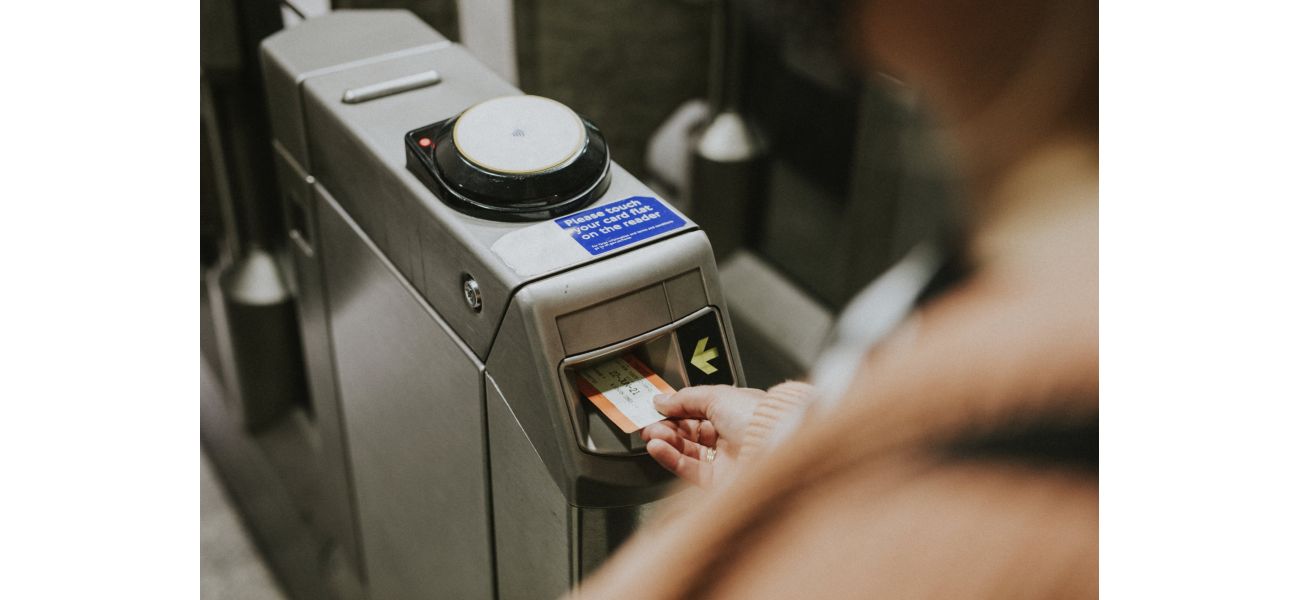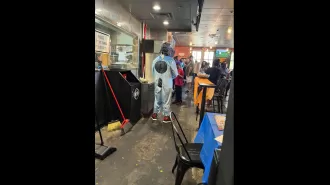A person who avoided paying train fare has to repay £12,000 after being caught doing so 736 times.
A repeat fare evader was guilty of 736 counts of fraud, not paying proper fare, and misusing their railcard.
February 10th 2025.

Did you know that fare dodging costs the rail industry a whopping £240 million every year? It's a serious issue that not only affects the train operators, but also the honest and hardworking passengers who pay for their tickets. One such train operator, Chiltern Railways, recently revealed that they have recovered £12,000 from a fare dodger who had committed a staggering 736 offences.
Chiltern Railways, who chose not to name the culprit, explained that the fare dodger had been engaging in fraudulent activities such as reclaiming money, deliberately not paying the correct fare, and abusing railcards. The train operator has managed to retrieve a total of £12,000 from this individual, but they are not the only repeat offender. In fact, there have been three other cases where passengers have been forced to repay up to £15,000 each for their repeated fare evasion.
Last year alone, Chiltern Railways investigated over 8,000 potential cases of fraud and successfully recovered more than £1 million in lost revenue. On top of that, they also collected £114,000 from the 2,156 penalty fares that were issued. These numbers are staggering and highlight the seriousness of fare evasion in the rail industry. In fact, according to Rail Delivery Group, an industry body, the total amount lost due to fare evasion in Britain amounts to a staggering £240 million each year.
So what exactly constitutes fare evasion? Well, passengers can be fined if they attempt to travel without a ticket or purposely purchase the wrong type of ticket. This includes not paying for the full journey, using a child ticket as an adult, or misusing railcards. As Chiltern Railways' operations director, Tony Baxter, puts it, "There is no excuse for fare evasion as it has never been simpler to purchase a ticket." They are determined to ensure fairness for the honest paying customers and anyone caught evading fares is at risk of a penalty fare or even prosecution.
Ticket fraud, particularly the misuse of railcards, has been a hot topic in recent months. In fact, hundreds of prosecutions were overturned in just three minutes by a magistrate who deemed that the cases should not have been taken to court. This was due to the fact that rail operators had used a controversial measure that they were not allowed to use. This has sparked a debate on the complexity and confusion surrounding ticketing, with some individuals facing criminal records for accidentally purchasing the wrong type of ticket.
For instance, a 22-year-old was at risk of a criminal record after unknowingly buying the wrong ticket with his railcard, which ended up saving him a mere £1.85. Similarly, a student who saved £1.90 was also faced with the threat of prosecution, but operator Northern eventually backed down on that and other cases where the ticketing system was deemed too complicated for customers. In another incident, a student was fined a hefty £129.50 for sitting in the "wrong" first class carriage, as only the rear carriage had been declassified while the front one had not.
In light of these incidents, a rail watchdog has suggested implementing a "yellow card" system for first-time offenders caught without a ticket. This would give them a warning instead of a fine or prosecution, allowing them to rectify their mistake without facing serious consequences. It remains to be seen whether this suggestion will be implemented, but it's clear that something needs to be done to address the issue of fare evasion in the rail industry. After all, it's not just about the money lost, but also about ensuring fairness and honesty for all passengers.
Chiltern Railways, who chose not to name the culprit, explained that the fare dodger had been engaging in fraudulent activities such as reclaiming money, deliberately not paying the correct fare, and abusing railcards. The train operator has managed to retrieve a total of £12,000 from this individual, but they are not the only repeat offender. In fact, there have been three other cases where passengers have been forced to repay up to £15,000 each for their repeated fare evasion.
Last year alone, Chiltern Railways investigated over 8,000 potential cases of fraud and successfully recovered more than £1 million in lost revenue. On top of that, they also collected £114,000 from the 2,156 penalty fares that were issued. These numbers are staggering and highlight the seriousness of fare evasion in the rail industry. In fact, according to Rail Delivery Group, an industry body, the total amount lost due to fare evasion in Britain amounts to a staggering £240 million each year.
So what exactly constitutes fare evasion? Well, passengers can be fined if they attempt to travel without a ticket or purposely purchase the wrong type of ticket. This includes not paying for the full journey, using a child ticket as an adult, or misusing railcards. As Chiltern Railways' operations director, Tony Baxter, puts it, "There is no excuse for fare evasion as it has never been simpler to purchase a ticket." They are determined to ensure fairness for the honest paying customers and anyone caught evading fares is at risk of a penalty fare or even prosecution.
Ticket fraud, particularly the misuse of railcards, has been a hot topic in recent months. In fact, hundreds of prosecutions were overturned in just three minutes by a magistrate who deemed that the cases should not have been taken to court. This was due to the fact that rail operators had used a controversial measure that they were not allowed to use. This has sparked a debate on the complexity and confusion surrounding ticketing, with some individuals facing criminal records for accidentally purchasing the wrong type of ticket.
For instance, a 22-year-old was at risk of a criminal record after unknowingly buying the wrong ticket with his railcard, which ended up saving him a mere £1.85. Similarly, a student who saved £1.90 was also faced with the threat of prosecution, but operator Northern eventually backed down on that and other cases where the ticketing system was deemed too complicated for customers. In another incident, a student was fined a hefty £129.50 for sitting in the "wrong" first class carriage, as only the rear carriage had been declassified while the front one had not.
In light of these incidents, a rail watchdog has suggested implementing a "yellow card" system for first-time offenders caught without a ticket. This would give them a warning instead of a fine or prosecution, allowing them to rectify their mistake without facing serious consequences. It remains to be seen whether this suggestion will be implemented, but it's clear that something needs to be done to address the issue of fare evasion in the rail industry. After all, it's not just about the money lost, but also about ensuring fairness and honesty for all passengers.
[This article has been trending online recently and has been generated with AI. Your feed is customized.]
[Generative AI is experimental.]
0
0
Submit Comment





